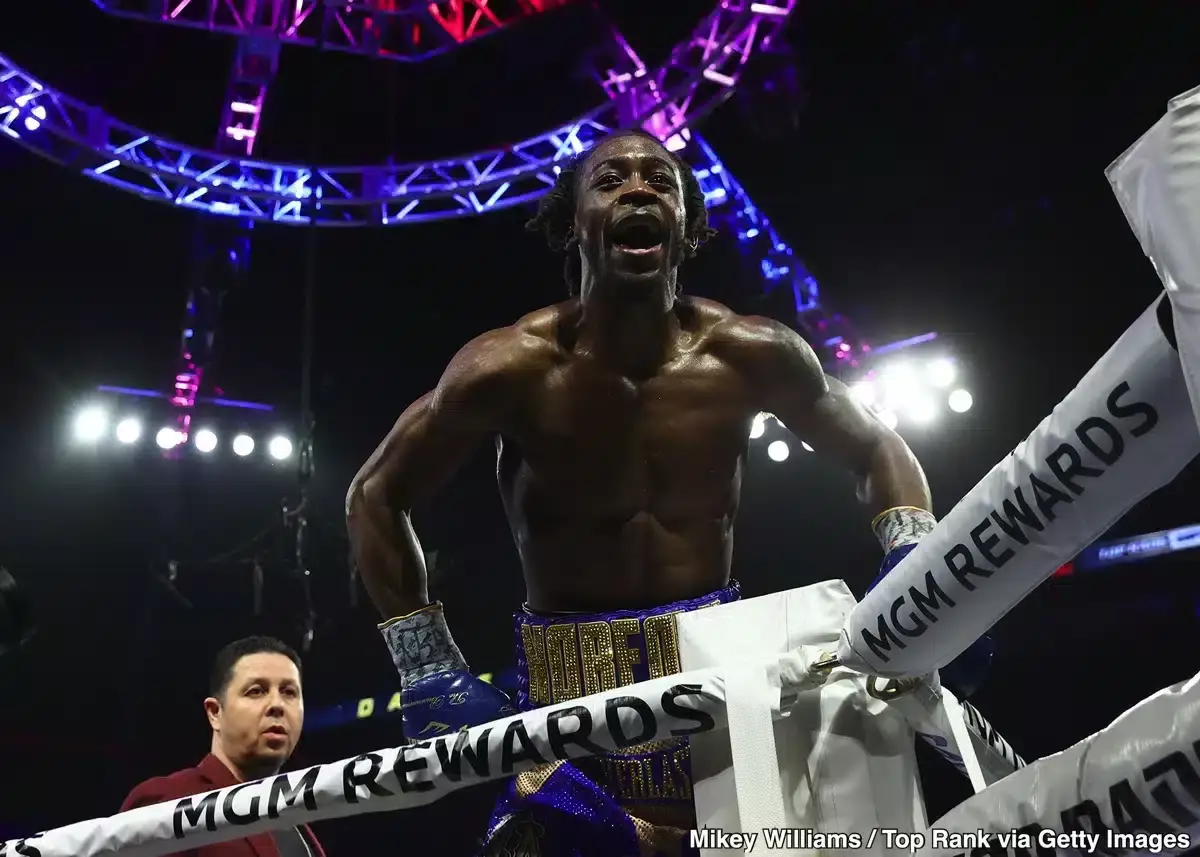In the hyper-competitive world of boxing, effective promotion is almost as crucial as the fighter’s abilities inside the ring. Emerging personas often resort to various strategies to create buzz and draw attention to their fights. Keyshawn Davis represents a case study in this regard, as he has recently been leveraging the name of established champion Gervonta “Tank” Davis to amplify interest in his upcoming bout against WBO lightweight champion Denys Berinchyk on February 14th. While some may view this approach as opportunistic or even disingenuous, it raises pertinent questions about the standards of success and recognition in a sport where fame and skill intersect.
Calibrating Public Perception: Relying on Reputation
Keyshawn Davis’ insistence on invoking Gervonta Davis’ name serves a dual purpose. First, it aims to elevate his own profile; second, it insinuates an anticipated rivalry that does not yet exist in reality. With only 12 fights under his belt, Davis has yet to demonstrate that he can compete with top-tier opponents. His recent performances against fighters like Nahir Albright and Miguel Madueno left fans and critics questioning his readiness for a high-stakes clash. By juxtaposing himself with an established name like Tank, Keyshawn hopes to cast a shadow on his comparatively underwhelming resume while drawing attention to an otherwise low-profile title bout.
In boxing, the ability to shape narratives is often as important as the threat posed by an athlete’s skill set alone. By framing his match against Berinchyk as a stepping stone that could lead to a showdown with Tank, Keyshawn attempts to sell not just a fight, but a story. Presented as a collision of two brighter lights in the sport, it becomes easier for him to conjure interest and spark discussions across fan forums and media outlets.
The Danger of Misplaced Focus
Despite the tactical brilliance behind his promotional strategy, Davis risks undermining his credibility in the process. His overt fixation on Gervonta Davis, coupled with an apparent unwillingness to forge his path, paints a picture of insecurity rather than confidence. If the narrative revolves more around his desire to face an “A-class fighter” than it does about his upcoming challenge against Berinchyk, he may end up inadvertently deflecting attention from what is supposed to be the focal point of his career: his own fighting skills and future developments.
Critics argue that this approach can dilute the importance of the current fight, making it feel more like a mere placeholder in an unfulfilled ambition rather than a legitimate championship opportunity. For an athlete who should be focused on sharpening his skills and building a solid reputation, this double-edged strategy may either accelerate his growth or expose his vulnerabilities even further.
In sum, Keyshawn Davis’ use of Gervonta Davis’ name in his promotional arsenal exemplifies the often complex relationship between a boxer’s personal ambition and public perception. While riding on the coattails of a more accomplished fighter temporarily garners attention, it risks overshadowing Davis’ own journey and the merit of the fights he faces. To truly establish himself as a serious contender, Davis will need to find balance—learning to promote without compromising authenticity—if he is to one day be considered not just a pretender, but a legitimate force in the boxing arena. Ultimately, success may not just come from the names he invokes, but from the legacy he builds through his own performances in the ring.

